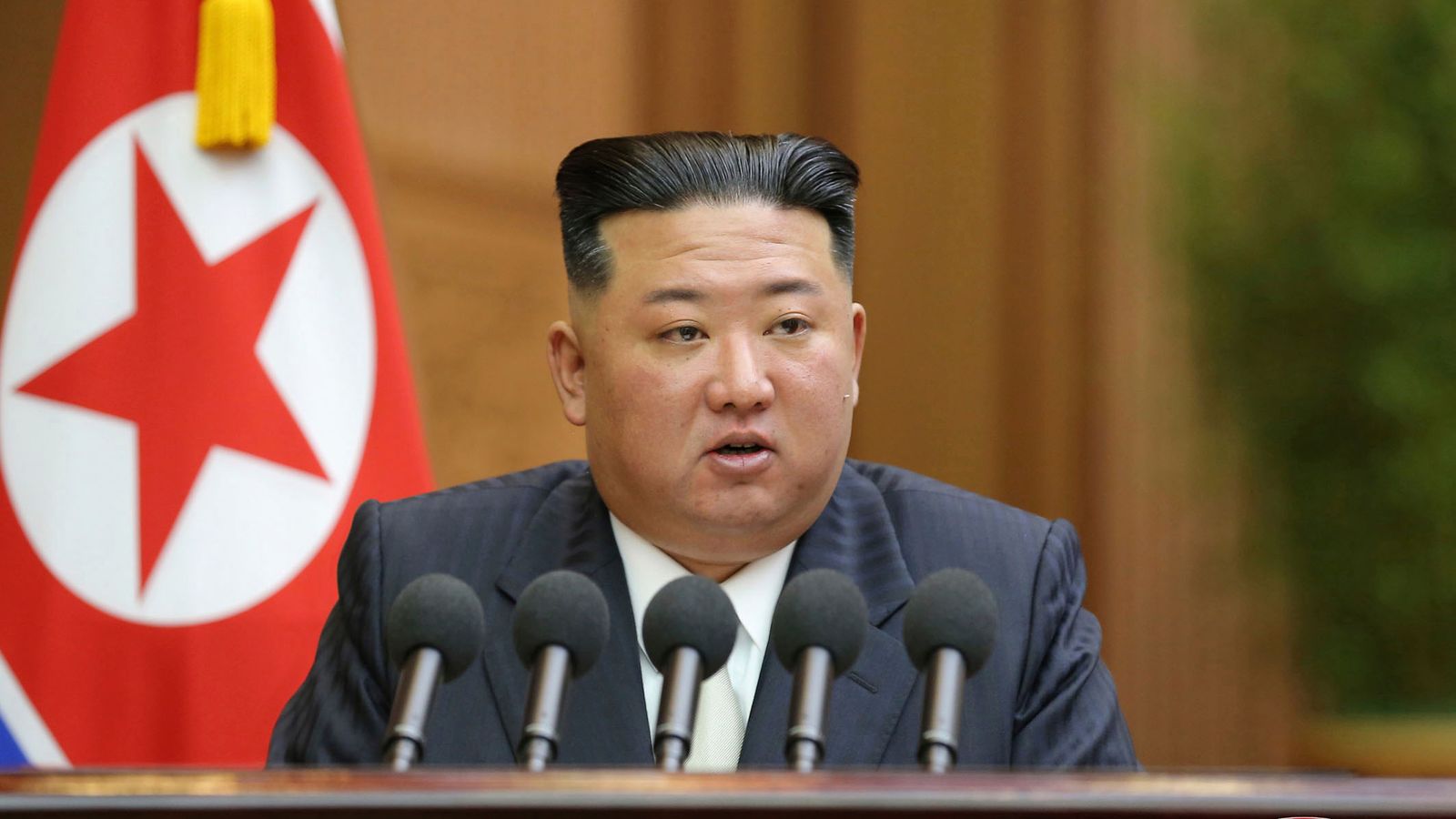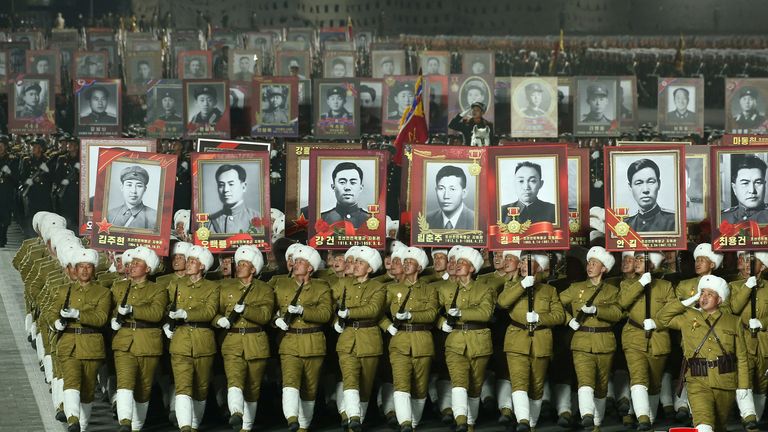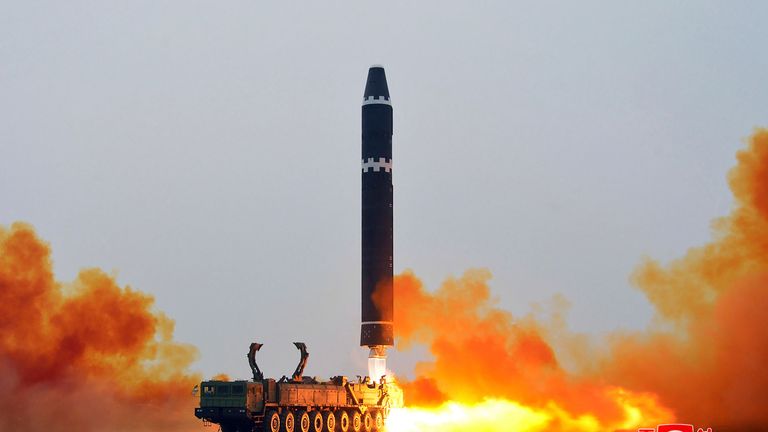North Korea’s official newspaper has said the country should reject foreign aid – likening it to “poisoned candy” – despite deepening hardships and reported food shortages.
The ruling Workers’ Party paper, Rodong Sinmun, warned against receiving economic help from “imperialists” who use aid as a “trap to plunder and subjugate”.
“It is a mistake to try to boost the economy by accepting and eating this poisoned candy,” the paper said.
It comes after warnings of a critical food shortage in the isolated nation, which in recent years has suffered from floods and typhoons and international sanctions aimed at curbing its nuclear and missile programmes.
The country, run as a totalitarian dictatorship by its leader Kim Jong Un, has also seen a sharp cut in trade with China – one of its only major external food sources – due to the impacts of COVID-19.
Most UN agencies and Western relief groups have left North Korea.
On Wednesday, South Korea’s Yonhap news agency, citing an unnamed source, reported that around 700 inmates at three prisons in North Korea, including in the central city of Kaechon, had died from famine and diseases over the past two years.
Seoul’s Unification Ministry, which handles inter-Korean affairs, declined to comment on the report.
However, on Tuesday, it warned about a potential increase in recent deaths from starvation in some North Korean provinces.
“Food production dropped from last year, and there is a possibility of distribution issues due to a change in their food supply and distribution policy,” a ministry official told reporters.
Read more:
North Korea launches more missiles
Kim Jong Un shows off North Korea’s growing nuclear arsenal
In December, South Korea’s rural development agency estimated the North’s crop production at around 4.5 million tonnes last year, 3.8% down from 2021.
The agency cited heavy summer rains and other weather conditions as a major reason.
Unification Minister Kwon Young-se said Pyongyang had asked the UN food agency, the World Food Programme, to provide support but there was no progress because of differences over monitoring issues.
According to the country’s state media, North Korea’s top officials are expected to meet at the end of February to discuss a “fundamental change” to agriculture policy.
Despite concerns about food security, Pyongyang has continued to launch displays of military strength in recent weeks and months, including several missile tests.
It fired two ballistic missiles off its east coast on Monday, as Kim Jong Un’s sister warned of “using the Pacific as our firing range”.
The incident came just two days after North Korea fired an intercontinental ballistic missile into the sea off Japan’s west coast, in what state media described as a move to strengthen its “fatal” nuclear attack capacity.
Japan’s defence ministry said the missile launches “threaten the peace and security of Japan, the region, and the international community”.


